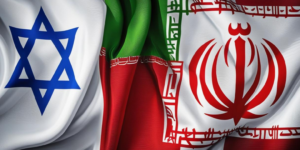What the Iran Prisoner Swap Reveals About US
As America celebrates the release of its citizens from an Iranian prison, concerns are growing over the prisoner swap.
Critics say the deal is another example of American weakness, and many in the U.S. and Israel believe Iran cannot be trusted.
Three of the Americans coming home from Iran stopped off in Germany for medical checkups before returning home to the United States and starting their lives again.
During an interview with a TV station in Boise, Idaho, Naghmeh Abedini called her husband Saeed’s release “surreal” and “unbelievable.” She said it will take time to adapt once her husband returns home.
“It’ll take time to readjust. He’s a different person, and I’m a different person,” she explained.
“I don’t know where he is at physically or mentally. Our family will need time to readjust, and that’s going to be the next step and asking for prayer,” she said.
Rev. Patrick Mahoney offered advice on how the body of Christ can pray and support the Abedinis as they work through some very personal marital issues.
“There are issues that are out there and then there are personal challenges that people face, and I think sometimes God uses flawed people, challenged people, difficult issues,” he told CBN News.
“I think we need—whatever personal issues Naghmeh and Saeed are having to address—it does not detract or draw attention from the issue of religious freedom,” Mahoney said.
She said she received a phone call from Republican presidential candidate Ted Cruz, who welcomed the news of Pastor Saeed’s release.
Nevertheless, he and other Republican candidates criticized the deal that freed the American prisoners, saying it set a bad precedent.
Sen. Marco Rubio, R-Fla., said, “It proves once again that now nations and enemies of America around the world know that there’s a price for Americans. If you take an American hostage, Barack Obama will cut a deal for—with you.”
And Donald Trump suggested it was a bad deal.
“We give them $150 billion, we give them essentially 22 people—21, 22 people—but these are people that really did have problems, and we’re getting back four people who didn’t do anything wrong … that’s the way we negotiate. That’s the way we negotiate. It’s so sad. It’s so sad,” he said.
Meanwhile, President Barack Obama said the prisoner swap and the nuclear agreement with Iran serve as a reminder of what America can achieve when it leads with strength and wisdom.
But the president’s positive spin on the deals is unlikely to change attitudes toward Iran in the near future. Many Americans still distrust Iran and think the nuclear agreement was a bad deal.
But for now, the captive Americans are heading home, and despite the concerns of conservatives—and Israel—the president’s nuclear deal is going into effect.




























































